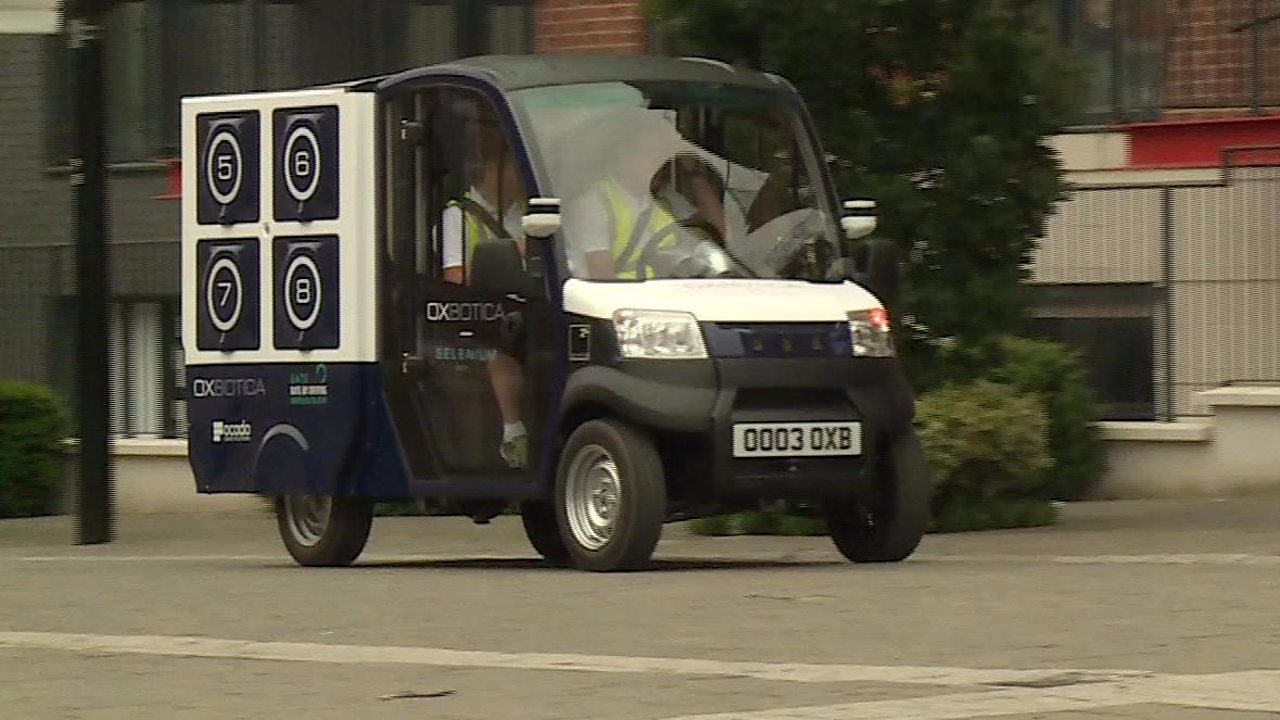Future may not be what it used to be
June 30, 2017 | Expert Insights

Ocado has sent a self-driving truck trundling through the backstreets of Woolwich, south-east London, as part of the UK’s first trial of autonomous grocery deliveries. The vehicle spent two weeks completing autonomous loops of a two-mile (3km) in semi-pedestrianised area. The electric CargoPod has a top speed of 25mph and can do 18 miles on a single battery charge. It is designed to work specifically in the type of environment, where bigger vehicles are not allowed. The small vehicle, developed by Oxford-based Oxbotica, is spending 10 days delivering food and snacks to Ocado customers. Both Ocado and Oxbotica hope the system will be ready for commercial launch by 2019 and that it will Amazon and Walmart a run for its money.
CargoPod
The CargoPod trial was part of a broader £8m research project into driverless technology, using the Greenwich area as a test location. For the purposes of the test, the van's speed was capped at 5mph and two people were inside for safety reasons. It was fitted with three Lidar (laser) sensors and a stereo camera as well as standard sensors used in modern vehicles.
In order to complete the delivery, when it came to a stop, one of the numbered crate doors would light up to indicate where the goods were stored. The door would then open when the recipient presses a button.
Low speed, lack of traffic, safety drivers are all part of the test process to make sure that driverless tech is safe to use in public. The company has previously demonstrated robots assembling delivery orders in its warehouses and is currently developing a humanoid maintenance engineer called Second Hands.
The trial is the latest evolution of Greenwich’s GATEway project, which initially involved Oxbotica’s autonomous driving technology being tested with small passenger vehicles on the borough’s waterfront near the former Millennium Dome.
Analysis
Given the regulatory environment, it's a lot easier to test driverless vehicles in the UK. The demand for this innovation might be high, but the question is whether economically is it possible to make it work.
While it’s said that, the UK is at the forefront of driverless car technology & is leading the world in preparing for autonomous vehicles - they are not nearly as visible as they are in places such as California, where 27 car manufacturers are testing automated vehicles.
What will be the impact of automation?
The impact of automation has been going on for several centuries, from the Luddites in 1811 to John Maynard Keynes’ prediction of technological unemployment in the 1930's, to Stephen Hawking's recent warnings over Artificial Intelligence.
Assessment
Our assessment is that, increased automation will in one hand enhance customer satisfaction and predictability. It will on the other hand impact jobs; with driverless cars, soon to become part of the landscape of our cities, it will add more pressure on the labour force.








Comments